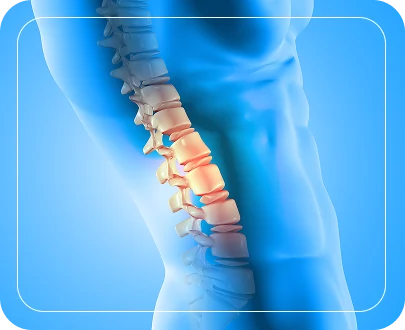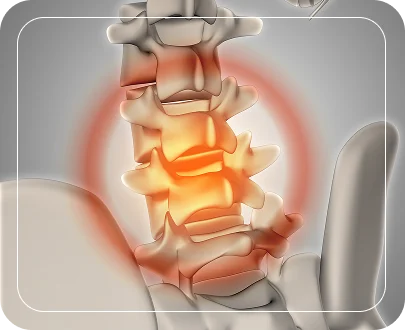Spine Fracture Treatment in Kolkata
Home > Treatments > Spine Fracture Treatment
Overview
A spine fracture, or a vertebral fracture, is a break or dislocation of one or more of the bones that make up your spine (vertebrae). These fractures can range from minor to severe, which can cause severe pain, loss of mobility, and, in some cases, nerve damage or paralysis. Immediate diagnosis and appropriate treatment are essential to prevent complications. If you are looking for an experienced spine fracture treatment doctor in Kolkata, consult Dr. Rohit Mishra.

Signs you need a Spine Fracture Treatment
-
Compression fractures:
Common in osteoporosis, where vertebrae collapse due to weak bones.
-
Burst fractures:
High-impact injuries that shatter vertebrae, increasing the risk of spinal cord damage.
-
Flexion-distraction fractures:
Caused by sudden forward force, often seen in car accidents.
-
Fracture-dislocations:
Severe injuries where bones break and displace, requiring urgent surgery.

Signs you need a Spine Fracture Treatment

Sudden, severe back pain

Sudden, severe back pain

Pain that worsens with movement

Pain that worsens with movement

Limited mobility

Limited mobility

Numbness or tingling in legs and arms

Numbness or tingling in legs and arms

Radiculopathy or pain radiating to limbs

Radiculopathy or pain radiating to limbs

Weakness or paralysis of limbs (in rare cases)

Weakness or paralysis of limbs (in rare cases)

Loss of bladder or bowel control (in severe cases)

Loss of bladder or bowel control (in severe cases)

Reduced height or stooped posture

Reduced height or stooped posture
Book an appointment today
Causes & Risk Factors of Spine Fracture
- Trauma from falls, accidents, or sports injuries
- Osteoporosis causing bone fragility
- Cancer/tumours weakening vertebrae
- Repetitive stress or overuse
- Violence or assault (e.g., gunshots)
- Advanced age and bone degeneration
- Long-term steroid use
- Underlying bone conditions (e.g., osteogenesis imperfecta)

Diagnosis of Spine Fracture

Physical examination

Physical examination

X-rays

X-rays

MRIs and Spine CT Scans

MRIs and Spine CT Scans

Bone density tests

Bone density tests
Spine Fracture Treatments
- Bracing
- Physiotherapy
- Spine fracture surgery like Balloon kyphoplasty, Vertebroplasty

FAQs
Is surgery always necessary for spine fractures?
No, many spine fractures heal with conservative treatments like bracing and medication. Surgery is typically recommended for unstable fractures or cases with neurological involvement.
Can I continue normal activities after treatment?
It entirely depends on the severity of the fracture and the treatment type. Most patients gradually return to normal activities during rehabilitation following their doctor’s recommendations.
What are the long-term effects of a spine fracture?
Long-term effects can include chronic pain, deformity and neurological problems.
How can I prevent spine fractures?
Maintain bone health through calcium and vitamin D supplementation, regular exercise, fall prevention measures, and bone density screenings. Those with osteoporosis should follow medication regimens carefully.
Will I need ongoing care after initial treatment?
Most patients benefit from follow-up care, including imaging, physical therapy and lifestyle modifications. Dr. Mishra’s team provides ongoing support to ensure optimal long-term outcomes.
